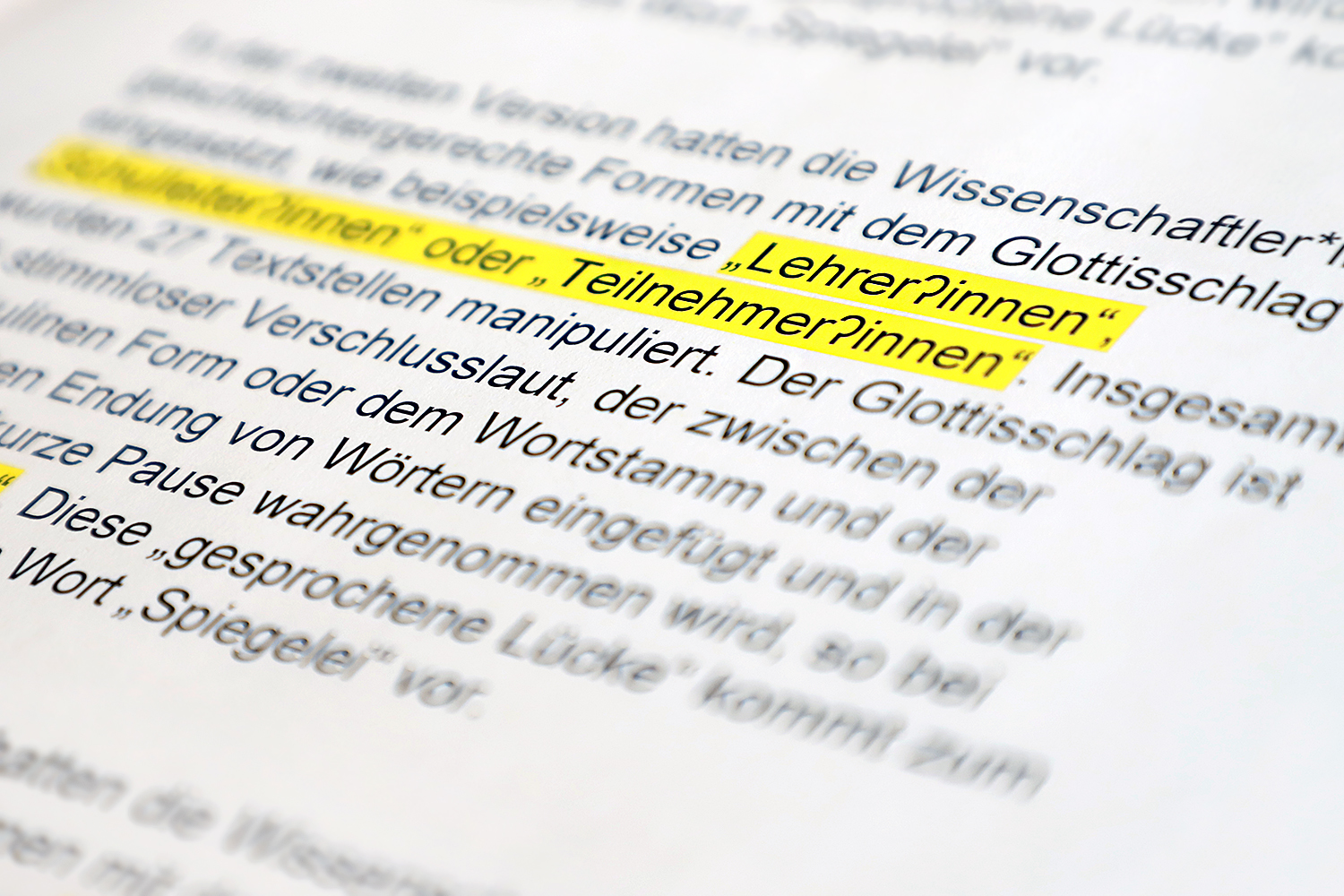The Voiced Gender-Asterisk Experiment at TU Braunschweig: no impairment of intelligibility due to glottal stop
Double mention, neutralisation or gender asterisk: More and more German texts use these forms of gender-appropriate language. In spoken German, too, one now hears more frequently the so-called glottal stop, a short pause that represents the gender asterisk, so to speak. Does the use of the glottal stop affect the intelligibility of a spoken text? The Institute of Educational Psychology at Technische Universität Braunschweig wanted to find out and tested it in an experiment with an educational video. The results of the study were published in the journal “Psychology Learning & Teaching”.

The glottal stop is a voiceless closure sound that is inserted between the masculine form or root and the feminine ending of words and is usually perceived as a short pause, as in “Leserʔinnen” (readers). Picture credit: Kristina Rottig/TU Braunschweig
“The discussion on the use of gender-equitable language is often emotional,” says Dr Marcus C. G. Friedrich from the Institute for Educational Psychology. “Critics argue that gender-equitable language would make texts less understandable and less appealing.” Together with Jennifer Muselick and Professor Elke Heise, the researcher investigated the comprehensibility and aesthetic evaluation of spoken texts with the glottal stop in an experiment.
The glottal stop is a voiceless closure sound that is inserted between the masculine form or root and the feminine ending of words and is usually perceived as a short pause, as in “Leserʔinnen” (readers). This “spoken gap” also occurs, for example, in the word “Spiegelei” (fried egg).
Experiment with educational videos
A total of 105 people took part in the experiment, most of them psychology students. The participants randomly watched one of two versions of an instructional video on self-determination theory by Edward L. Deci and Richard M. Ryan. The videos were about eight minutes long. The audio track consisted of a 1,056-word lecture. One version of the video used only masculine forms such as “Lehrer” (teacher), “Schulleiter” (headmaster) or “Teilnehmer” (participant). In the second version, the researchers had used gender-equitable forms with a glottal stop, such as “Lehrerʔinnen” (teachers), “Schulleiterʔinnen” (headteachers) or “Teilnehmerʔinnen” (participants). A total of 27 passages were manipulated.
After watching the instructional video, the subjects filled out a questionnaire on the comprehensibility of the previously viewed clip. “The results show no statistically significant impairment in terms of the overall comprehensibility of the educational videos,” says Dr Friedrich. Similarly, the glottal stop did not make it difficult for the participants in the experiment to ascribe meaning to the words or decipher the syntax of the sentences. The aesthetic experience of the educational videos was also not impaired. “The frequently repeated criticism that gendered language impairs comprehensibility could therefore not be confirmed here.”
Only plural forms were examined in the study. In follow-up studies, the more complex singular forms such as “der bzw. die Spielerʔin” (the player) will also be examined. The results are also to be tested with other groups of people, such as pupils or people learning German as a foreign language.
